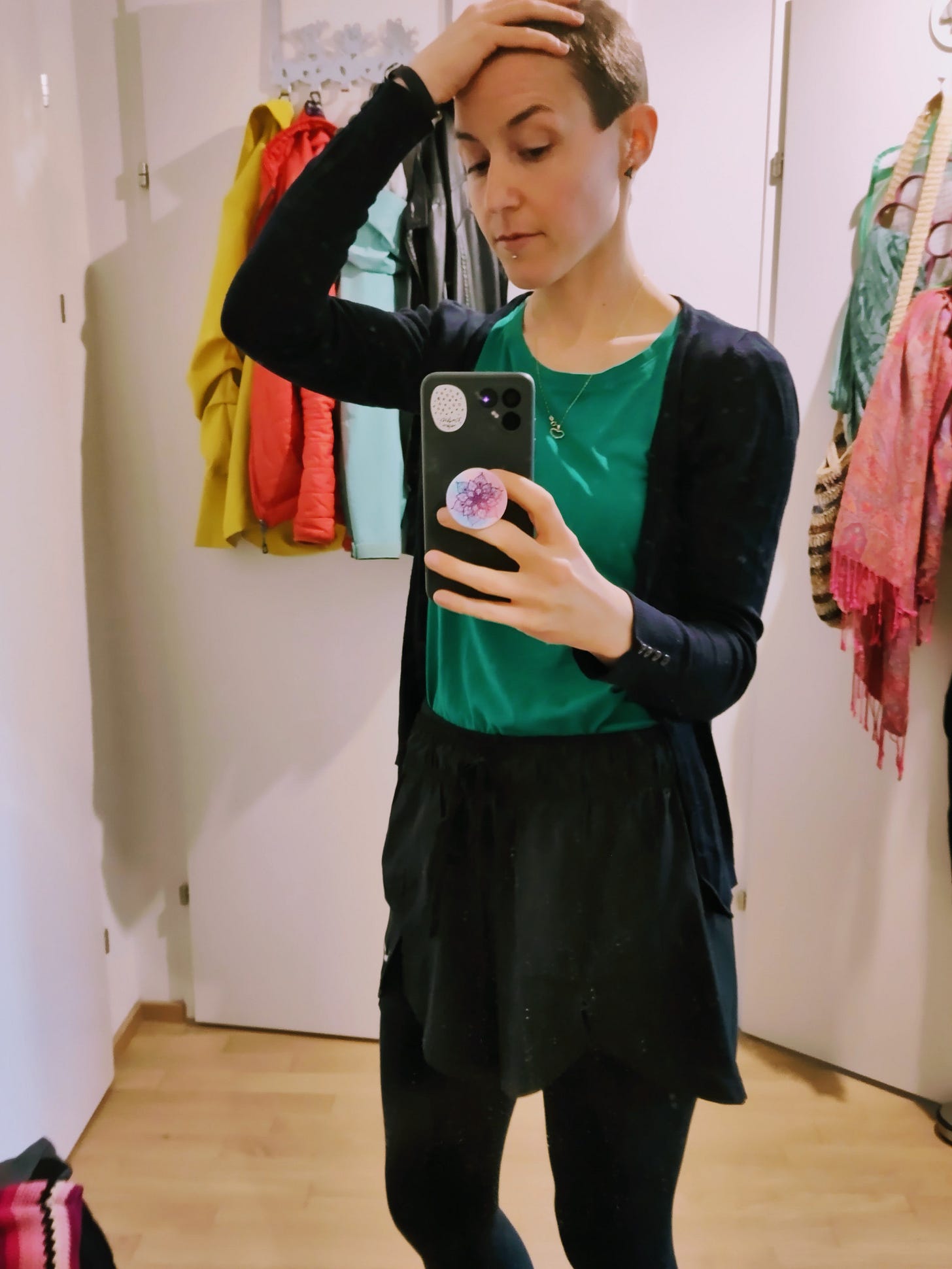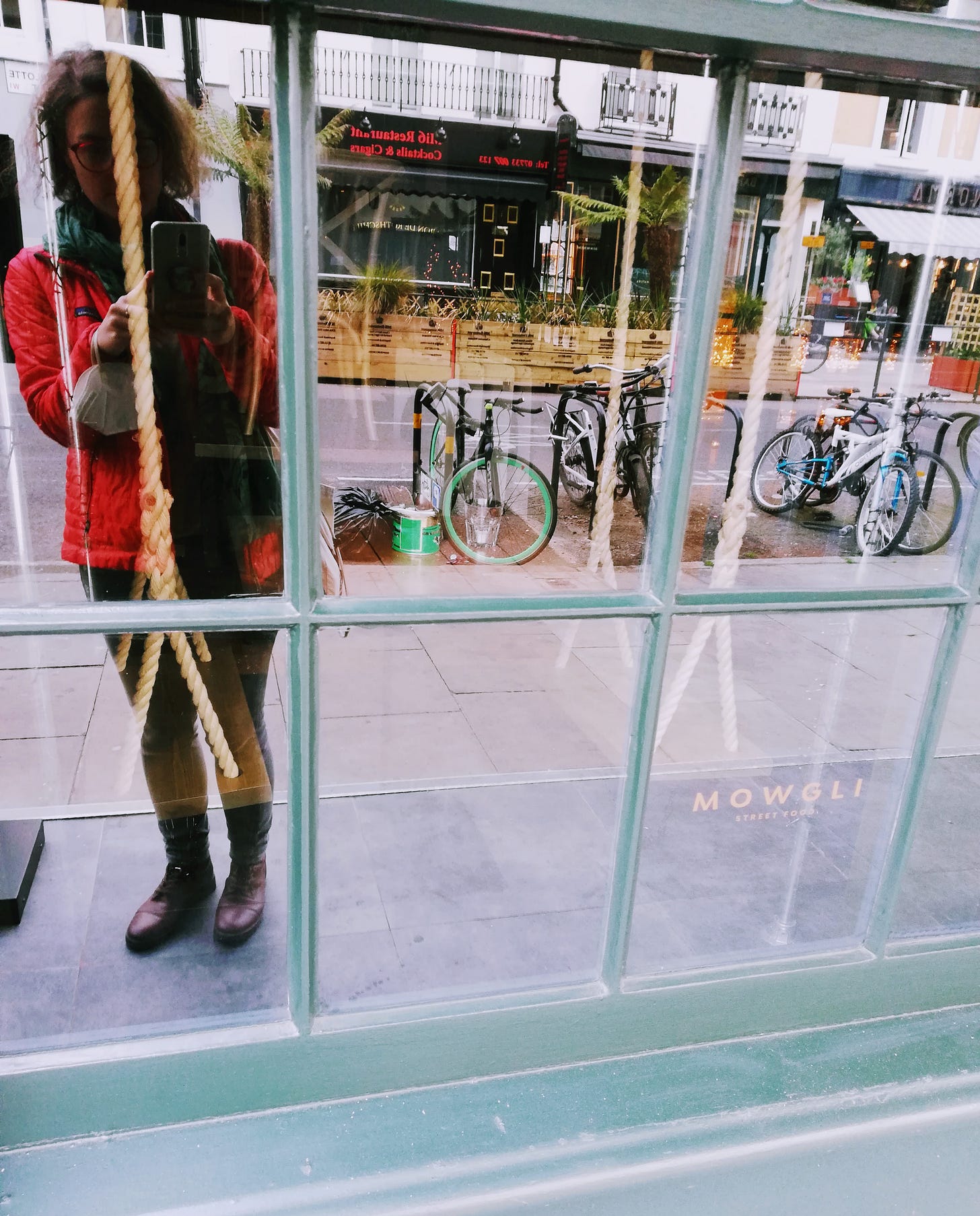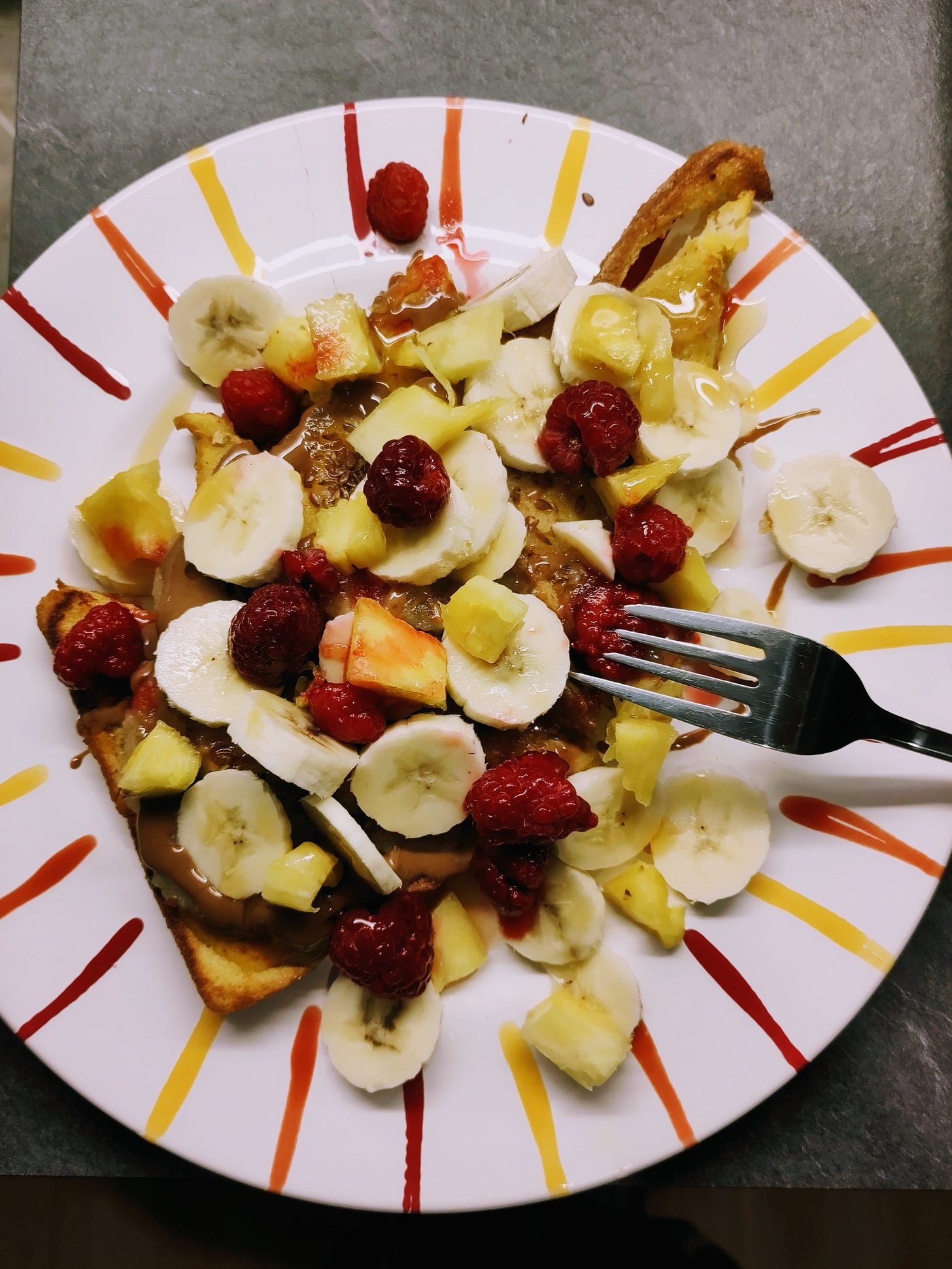
Mastering the art of losing
Loss has been been my “word-of-the-week” in a way. This focus was not intentional. But when life gives you losses, there is a point when you need to recognize the persistent presence of the art of losing in your life. And perhaps muse about it. Loss, in general, refers to the fact or process of losing someone or something; at times, this is accompanied with grief.
In the process of learning to live with my set of chronic conditions, especially Long Covid, the losses along the way did not always bluntly register as such. The ongoing tasks of making it through the next minute, hour, day preoccupied me. Now that I have implemented countless small and big adjustments in my life, in more quiet moments, I realize how illness has decluttered all aspects of my life.
Last week, I (finally) watched the movie Still Alice (2014) 📽️ 🎞️. I read the book years ago, and since my mom has always had a special focus on dementia and Alzheimers in her geriatric care work, I have been curious about representation in the arts. In the movie, the titular protagonist Alice is asked to speak in front of a group of other people living with dementia and/or Alzheimers. As an academic, her first instict is to give a science-based talk with plenty of numbers and graphs. However, as per her daughter’s suggestion, she, instead, tells her story. Alice accomplishes this beautifully by using Elizabeth Bishop’s poem “One Art” to share how the “art of losing” that “isn’t hard to master” has impacted her life.
On Tuesday, I had to visit a neurologist’s practice to pick up results I need for an appointment with another specialist. I initially went to see this neurologist over a year ago when I was starting to get scared about the cognitive impairments that I’d had since my Covid-19 infection six months prior.
In 2022, I had diligently prepared a list of symptoms with examples to illustrate my state of health. The symptoms (still) range from memory loss, trouble finding words, and difficulties concentrating to tinnitus, unsteady hands, and (almost daily) headaches. The neurologist, however, only examined me very briefly in their office before sending me off to get an MRI and do a useless and exhausting memory and concentration test. When we discussed the results, they concluded that nothing was really wrong and prescribed: fresh air and a sort of multi-vitamin for cognitive function. Fresh air and vitamins.
Surprise, surprise: Fresh air and vitamins did not suffice and, truthfully, I am in a worse state today than I was a year ago. To finally receive the written diagnosis from 2022, I went back to get that document. I lost a whole hour (- of prime chronic illness time, where I don’t feel too exhausted, nauseous, dizzy, etc. yet -) waiting and having to advocate for my right to an official, written diagnosis. As it turned out, the neurologist had never even written up my diagnosis. (I have since switched to a more compassionate neurologist and we are trying out different approaches to improve my health and well-being.)
Unfortunately, many people with chronic illnesses have to face this type of obstacle to feel heard and receive adequate treatments.
Elizabeth Bishop "One Art" The art of losing isn’t hard to master; so many things seem filled with the intent to be lost that their loss is no disaster. Lose something every day. Accept the fluster of lost door keys, the hour badly spent. The art of losing isn’t hard to master. Then practice losing farther, losing faster: places, and names, and where it was you meant to travel. None of these will bring disaster. I lost my mother’s watch. And look! my last, or next-to-last, of three loved houses went. The art of losing isn’t hard to master. I lost two cities, lovely ones. And, vaster, some realms I owned, two rivers, a continent. I miss them, but it wasn’t a disaster. —Even losing you (the joking voice, a gesture I love) I shan’t have lied. It’s evident the art of losing’s not too hard to master though it may look like (Write it!) like disaster. (The Norton Anthology: American Literature. Literature since 1945)

Chronic illnesses tend to teach tough, unwanted lessons. The art of losing has been a major one: on health; on my sense of self; on my body; on relationships; on my experience of time; on what constitutes a good life.
My low energy, thanks to Long Covid, has forced me to be a little bit more selfish (very difficult as a people pleaser). It has given me a new perspective on what is essential to my self and what is worth (the energy) having in my life; and what isn’t. In that sense, I feel freer and more content than I ever have before, since many outside expectations and expectations of myself, and opinions did not make the cut. I get buzz cuts, wear only clothes that are truly comfortable (at home and outside) - nothing else is bearable, stopped shaving.
“Guilty pleasures” are also a thing of the past. Everything I watch or listen to or eat is my choice and as such, brings me great pleasure. Removing activities and things that - BC (Before Covid) - were in my life without ever examining my “whys” has been worthwhile. If I cannot come up with a satisfying answer to “why am I doing/do I have xyz?”, out it goes. So after some losses, what remains is more time to understand myself better and time to heal.
Words that remain
Glimmers
Glimmer: a micro moment of joy, awe, hope, safety; opposite of trigger
Talking to my nephew about Jupiter one evening & then promptly spotting it in the night sky (identified with the help of the Sky Map app). I immediately called my sister-in-law and explained the location of the planet. Later, my nephew called me & told me all about how exciting it was when they saw Jupiter from their balcony. 🤗🪐
Attending my niece’s big string concert this week, seeing all the kids’ joy in playing their instruments, and getting into the spirit of the season with Christmas songs. 🎻🎼🎄🌟
French Toast! 😋🍞🍌🍍 Once for Sunday breakfast and once for an afternoon snack, because why not??
A question that remains…
Have you ever thought about your “whys” for (your way of) doing things? 🤔🤔🤔







